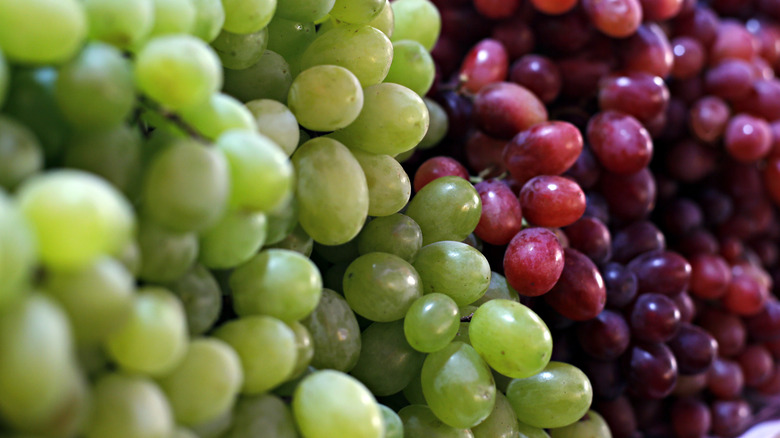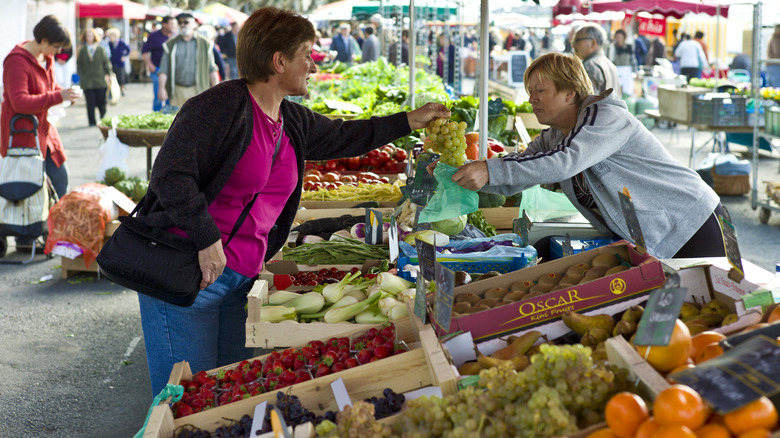Why Grocery Store Grapes Taste So Different Than Those From The Farm
The phrase "you eat with your eyes first" is no myth and no one knows this better than anyone who sells food. Supermarkets display piles of plump grapes ranging in color from light green to purplish black. Those grapes are beautiful, unblemished little jewels just screaming to be added to your lunch box or frozen as a summertime treat. Their looks draw you in and, before you know it, you've got every color of the grape rainbow in your shopping basket. This hasn't happened by coincidence. A supermarket's main concern is to make money. According to a study featured on Retail Space Solutions, if a store's produce displays are attractive, the customers are more likely to spend more throughout the entire store. But how many times have you popped one of those gorgeous grapes into your mouth once you've gotten home only to bite into a pretty, but terribly sour morsel of fruit?
This tends to happen less at farm stands and farmer's markets. Here, the fruit that looks great on display tends to taste as good as it looks, even if the berries at the bottom of the tray are a little bruised or dented. So, what gives? Fruit is picked when it's ripe, isn't it? So then, why shouldn't it taste the same across the board?
Looks versus flavor
According to Bon Appétit, supermarkets want shelf life. The longer a product can stay on the shelf for sale, the better. So, they place these demands on the farmers who, in turn, pick produce as soon as it looks appetizing but before it is fully ripe in order to meet the demands of their buyers. Not to mention the fact that produce in a supermarket often comes from very far away; hello, avocados from Mexico! According to the blog Eat Like No One Else, grapes don't ripen once they are cut from the vine; they go from attractive and sour to limp, browned, and sour with no sweet goodness in between.
The United States Department of Agriculture suggests that produce you find at the farmer's market is sold at the peak of its growing season and is grown locally. The pressure to pick this fruit does not come from how long its shelf life is, but from how it tastes to the consumer. If they like it, they'll be back for more, spending more money for the best flavor. When it comes to large-scale grape farmers, not all are the same. The Grapery, out of California, sells their grapes nationwide at large-scale markets and even big box stores. According to Bon Appétit, they harvest their grapes not a moment before they are ripe. This results in a grape that's shorter on shelf life but big on flavor. You know, the way it's supposed to be.

